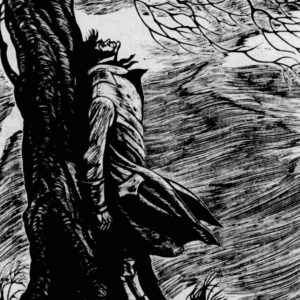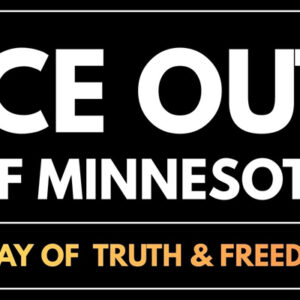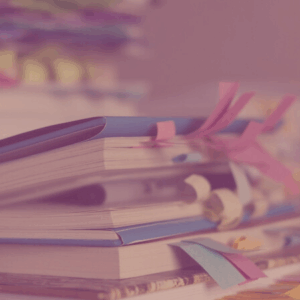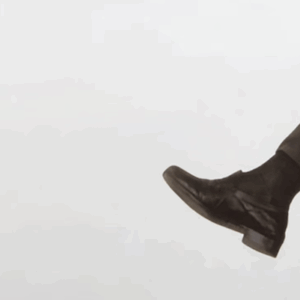
Why Did I Wait So Long to Read Jane Austen?
Joshua Raff on His Pandemic Jane-Quest
I came to Jane Austen late. As a lifelong reader, I do not have a simple explanation for this omission, but when my family decided to read Pride and Prejudice as a family reading project soon after the pandemic forced us into isolation, I jumped at the chance to fill in the gap in my literacy.
Once I found my footing in her language, I was hooked. I put aside the other books I had been reading and devoted myself to Jane. I followed Pride and Prejudice with Emma and then Persuasion in quick succession. Each one was a true page-turner, great storytelling, with the added heft of sharp social commentary in language that is elegant, intricate, and comforting at the same time, a combination that seemed lacking in the other books I had been reading during the pandemic. And as the father of two daughters, I felt a special kind of admiration for Austen’s young heroines, who seem somehow of their age and modern at the same time. Particularly Elizabeth Bennet in Pride and Prejudice, who fits but does not fit, who reads, who observes with some humor the people around her and the world they inhabit. And who in one of everyone’s favorite scenes, stands up to the imperious Lady Catherine de Bourgh, in a way even more modern heroines would be proud to emulate.
Why it had taken me so long to read Austen? Was it the male bias of my education? Did I buy into the perception of her as too feminine, “too girly” as Nat Newman puts it (“Men Who Love Jane Austen,” Overland, December 15, 2016)? Is our reading that gendered? And what is it about her novels that offers both escape and solace for these stressful times?
Before I started on my Jane-quest, I’d known even less about Austen and her life than I did about her books. And I did not appreciate the degree to which she has engendered an obsessive fanbase. Witness the legions of Janeites of all ages across geographic boundaries and cultures, all taken by stories set almost entirely in the stultifying and seemingly narrow world of the upper classes of Regency England. She is popular in Japan, for example, where there are even manga versions of her books, according to Austen scholar Catherine Golden. In addition to her Japanese fanbase, her stories have been relocated to India (Bride and Prejudice) and to contemporary Los Angeles (Clueless, a family favorite), to mention only a few, and have even been recast as vampire and zombie stories. There are Jane Austen Societies all over the world celebrating all things Jane.
Women do seem to make up Austen’s primary readership. Catherine Golden’s Austen classes at Skidmore College, where she holds the Tisch Chair in Arts and Letters, are filled overwhelmingly with women. I am guessing the same is true at many other colleges and universities. “Janeites are typically female and mostly tea drinkers” Jeanne Kiefer concludes in the most recent Jane Austen survey (Anatomy of a Janeite: Results from The Jane Austen Survey 2008). Is there a connection? I am delighted to finally read Austen but you cannot make me drink tea.
I am delighted to finally read Austen but you cannot make me drink tea.
Men who find Austen tend to do so later in life than women readers, according to Kiefer. That is certainly true for me. But the male reader’s resistance to Austen seems to be a relatively recent phenomenon. Professor Golden told me that until the mid-20th century, men were great readers of Austen. And Austen’s novels were even shipped to British soldiers on the front in both World Wars, in editions made specially to fit in the pockets of their uniforms.
Readers see in Austen “pretty young women, big houses… demure dramas in drawing rooms” according to Helena Kelly (“The Many Ways in Which We Are We Wrong About Jane Austen” on this website, from her book, Jane Austen, the Secret Radical). That is the version of Austen presented in the many film and television adaptations of her novels, with Austen’s edges smoothed. But if that is how we know Austen, Kelly says, “We know wrong.”
While Austen’s novels take place in “feminized spaces,” in the words of writer and literary critic William Deresiewicz, Jane is often mischaracterized as “an exponent of grand passion.” It is possible that I put Austen into a box reserved for particularly feminine writers, although I read at least as many novels by women writers as I do by men. Is the very existence of such a box (if indeed there is one) evidence of unconscious misogyny?
Unlike women readers, who have been forced to cross-identify with male characters for years, men have not had to find commonality with women characters and are simply not good at it, says Deresiewicz. His book, A Jane Austen Education, describes his transformation as both a man and a person once he breached this barrier. As much as I luxuriated in Austen’s work, I cannot say I underwent such a transformation or, if I did, I didn’t notice, nor did my family or my Zoom-mates. It is never too late, I suppose.
It may be that “men who read,” potential Janeites, are turned off by Austen’s sometimes brutal treatment of her male characters. I for one am mostly embarrassed, occasionally appalled, at the often vain, vapid, supercilious and small-minded men who populate Austen’s books, characters like Sir Walter Elliot in Persuasion or Mr. Collins in Pride and Prejudice. But Austen spares no one and there are many female characters who fit that description as well. And by necessity, there are a few good men, often matches for the heroines, since the books do end in traditional marriages. But the description of Sir Walter that opens Persuasion was almost enough for me to abandon the book entirely. Obsessed with rank, his place in society, and impossibly vain, “He [Sir Walter] considered the blessing of beauty as inferior only to the blessing of a baronetcy; and the Sir Walter Elliot, who united these gifts, was the constant object of his warmest respect and devotion.” And that is one of Austen’s milder descriptions of this ridiculous man. I overcame my discomfort to read on and am so happy I did.
The healing or soothing powers of Austen’s writing have long been recognized, according to Professor Golden. Not only were British soldiers on the front sent copies of Austen, soldiers suffering from shell shock (or what would now be known as PTSD) were given her novels to aid in the rehabilitation process. Rudyard Kipling, a great admirer of Austen’s work, even wrote a story about a group of soldiers reading Austen (The Janeites, published in 1924).
Austen’s language is often biting, but it is also a relief from the loud vulgarity that passes for some commentary today.
What makes Austen so appealing in times like these, times of isolation and stress? It is at least in part escape, to a world, closed and sheltered as it may have been, in which the primary preoccupations seem to be balls and teas and weddings, suggests Golden. Ordered and stable worlds, as William Deresiewicz describes them, set in rural and domestic settings. And for those soldiers in the trenches, a picture of home, an idealized England. One of the soldiers in Kipling’s story describes Austen’s novels: “They weren’t adventurous, nor smutty, nor what you’d call even interestin’-all about girls o’ seventeen (they begun young then, I tell you), not certain ‘oom they’d like to marry; an’ their dances an’ card-parties an’ picnics, and their young blokes goin’ off to London on ‘orseback for ‘air-cuts an’ shaves.” Even if that were all there is to Austen, there seems to me nothing wrong with escape for its own sake in difficult times, should you be lucky enough to be able to find it for a few moments. But it also seems that in particularly stressful times, the ideal escape should have enough weight to stand up in the face of the crisis. Jane has that weight.
Not only were British soldiers on the front sent copies of Austen, soldiers suffering from shell shock (or what would now be known as PTSD) were given her novels to aid in the rehabilitation process.
Her novels are more than good stories, even to the casual reader. Her caustic commentary on class and certain other of the social ills of her time transcends mere escapism and makes her books a worthy diversion in difficult days. Austen’s commentary on the role and plight of women, even women of privilege, is just as relevant today as it was two hundred years ago. Which I suppose is sad in and of itself. Her insights into human emotion, “free and direct discourse,” according to Professor Golden, take us directly into the minds of her characters and provide an immediacy that speaks to readers today, human nature and emotion not having changed so much from Austen’s time.
Austen’s language is often biting, but it is also a relief from the loud vulgarity that passes for some commentary today. Perhaps that sounds old-fashioned, but there is peace to be found there, in the pacing, the restraint, the poetry and elegance that is a product of another time entirely. And of course, of Austen’s genius. Austen depicts a highly regimented society, her characters bound by an intricate web of rules. I would not want to live in that time, but as a fiction it is a welcome counterpoint to the chaos that seems to surround us today. There is a politesse or etiquette that is both suffocating and appealing, requiring her characters to remain in control of their behavior no matter how roiling their inner turmoil. Austen’s villains violate these accepted social norms in gross ways, while the heroines (and a few heroes) stray in small ways that loom large in the narrow world in which her characters live. And in a strange parallel to our circumscribed lives during the pandemic, Austen’s world like ours is limited, both geographically and by social order.
As it turns out, the rest of my family have not yet gotten back to Pride and Prejudice, although they delight in my conversion to Austen. And while some things seem to be looking up in our world since I finished reading Persuasion, recent events are sufficiently dire as to demand a worthy if occasional distraction from the deadly seriousness of events around us. Jane Austen is just the thing. I am off to read Northanger Abbey.
Joshua Raff
Stepping back from the full-time practice of law—Joshua Raff explores and writes about food and cooking, travel, wine, music, books and art in its various forms to consider and comment on legal and social issues. He received a M.F.A. degree in creative nonfiction at the University of King’s College in May 2019 and lives in New York City with his wife and kids.



















